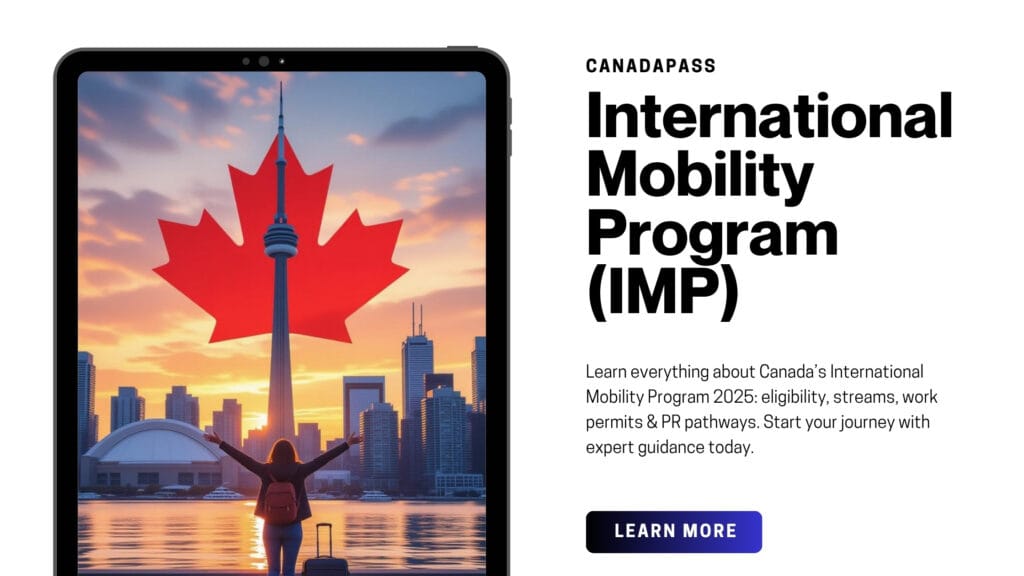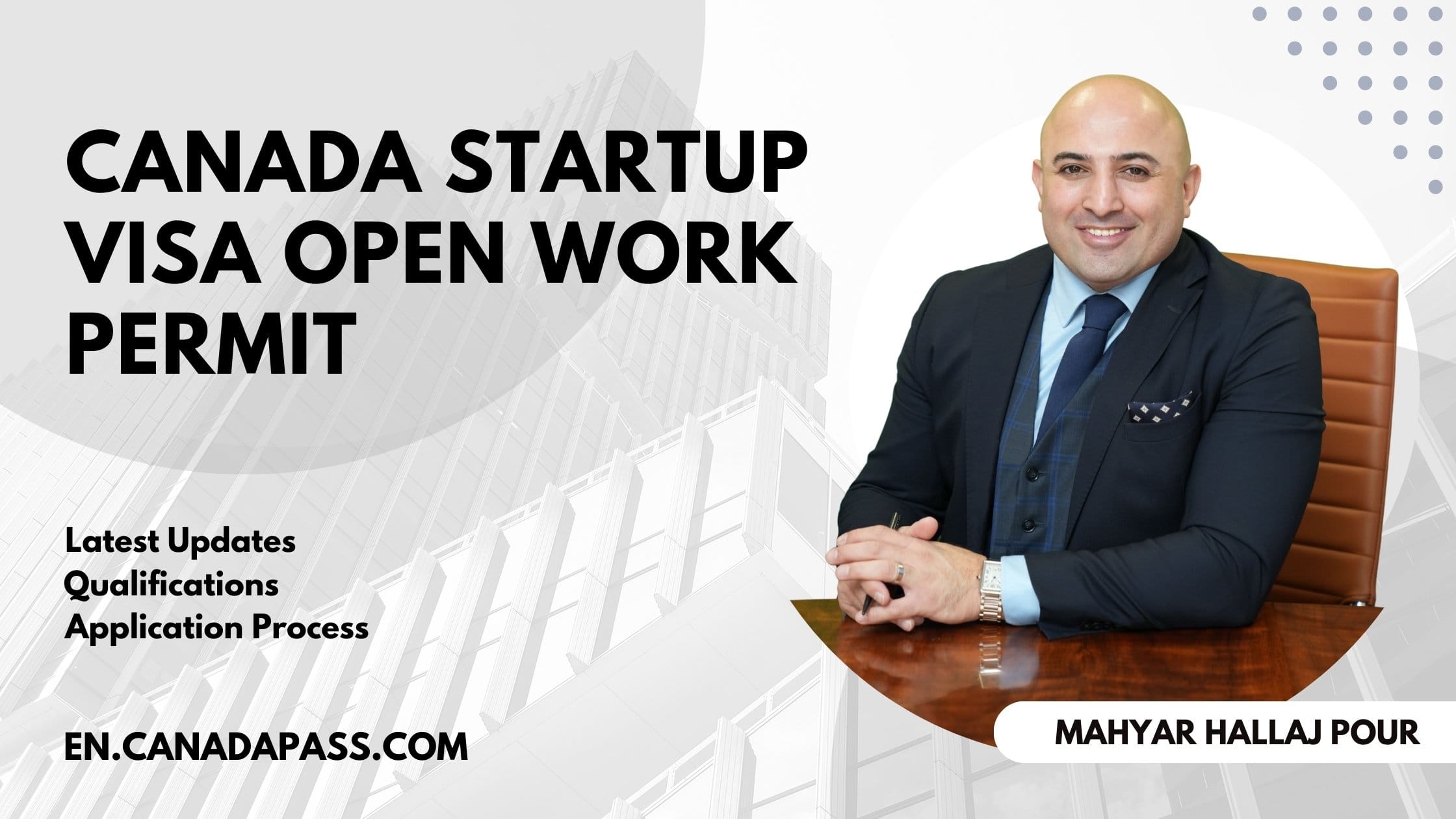Canada welcomes skilled individuals to contribute to its diverse economy through temporary foreign worker programs.
Each year, approximately 500,000 work permits are issued, allowing foreign nationals to legally work in Canada.
For many, working in Canada provides valuable
employment opportunities and professional development. It can also serve as a first step towards permanent residency for those interested in settling in Canada.
This page provides a general overview of work
permits in Canada. It outlines the different types of work permits available,
eligibility requirements, and the application process.
Working in Canada: Eligibility Overview
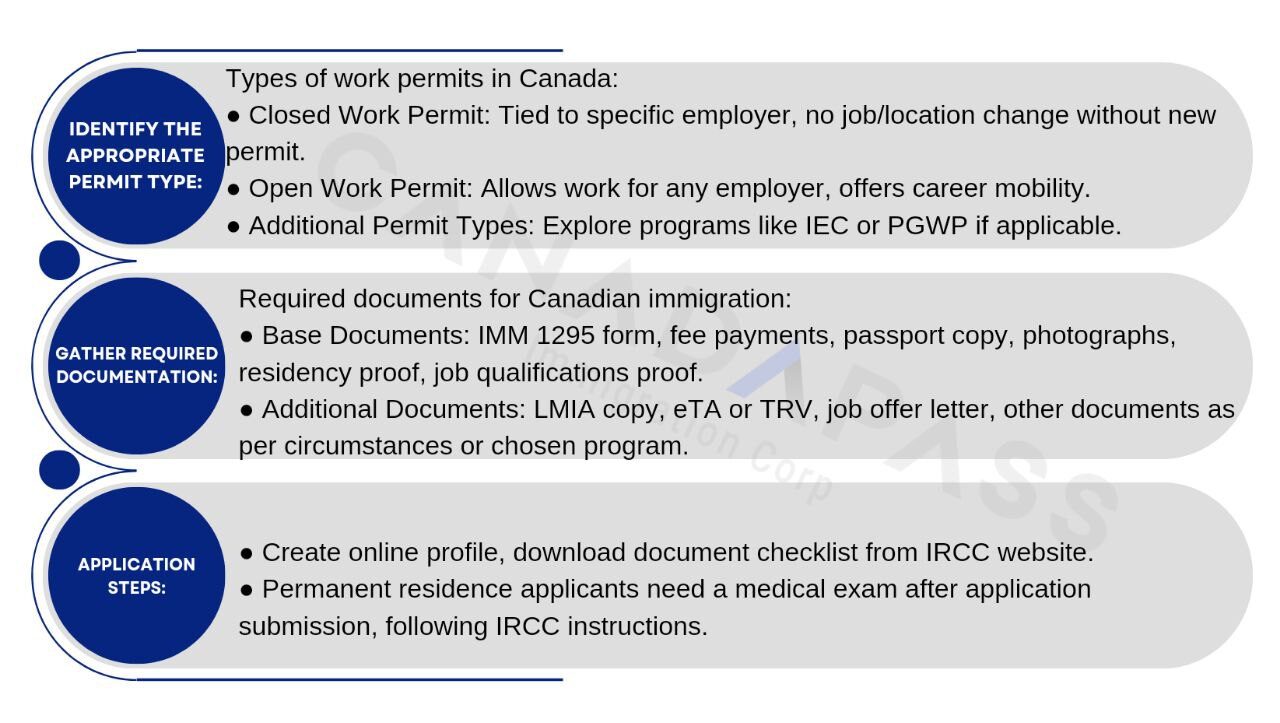
Working in Canada as a foreign national typically requires a work permit, except in certain limited situations.
Key Requirements for a Work Permit:
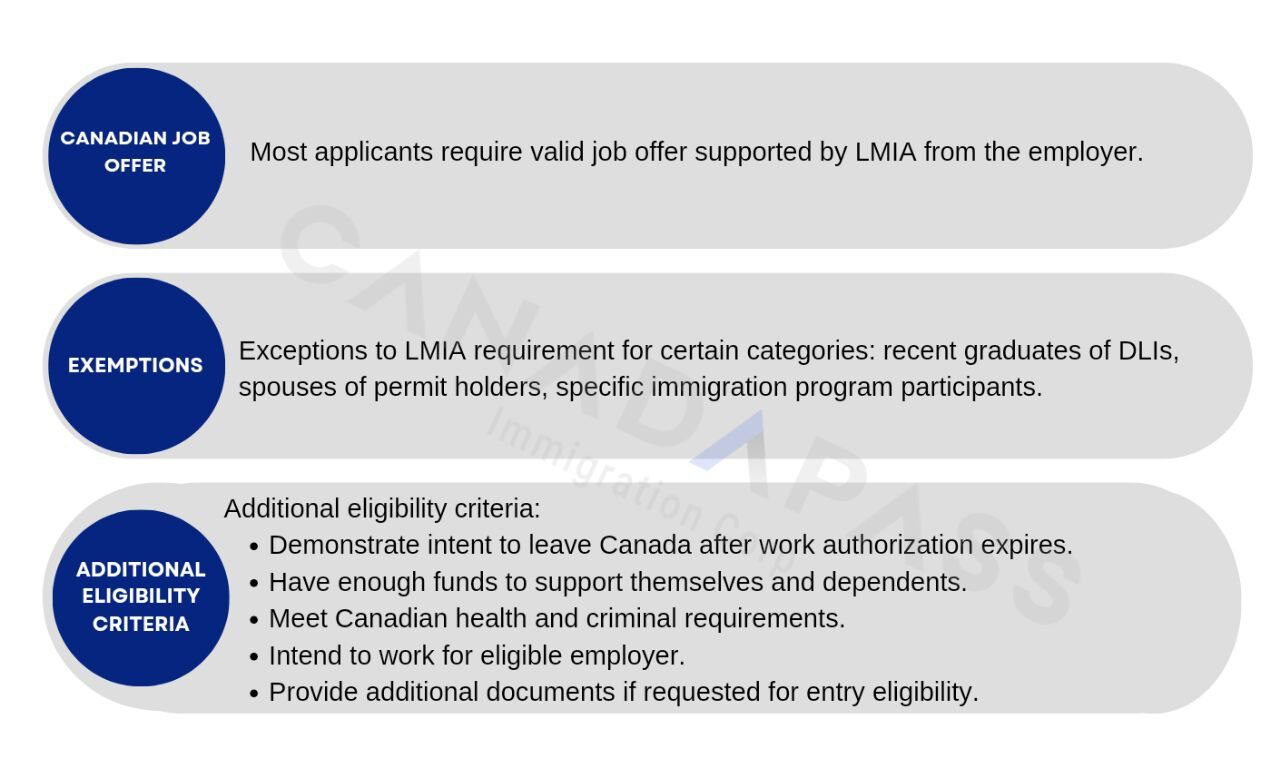
● Canadian Job Offer: Most applicants need a valid job offer supported by a Labour Market Impact Assessment (LMIA) issued by the employer.
● Exemptions: Exceptions to the LMIA requirement exist for certain categories, including recent graduates of Canadian Designated Learning Institutions (DLIs), spouses of work or study permit holders, and participants in specific immigration programs.
● Additional Eligibility Criteria: Regardless of exemptions, all applicants must:
○ Demonstrate intent to leave Canada once their work authorization expires.
○ Possess sufficient financial resources to support themselves and
any dependents during their stay and upon return to their home country.
○ Meet Canadian health and criminal inadmissibility requirements.
○ Intend to work for an eligible employer.
○ Provide any additional documents requested to verify eligibility for entry to Canada.
Navigating Work Permit Options in Canada
Canada welcomes skilled individuals to contribute to its economy through various temporary worker programs.
Understanding the different work permit types is crucial for navigating your Canadian employment journey.
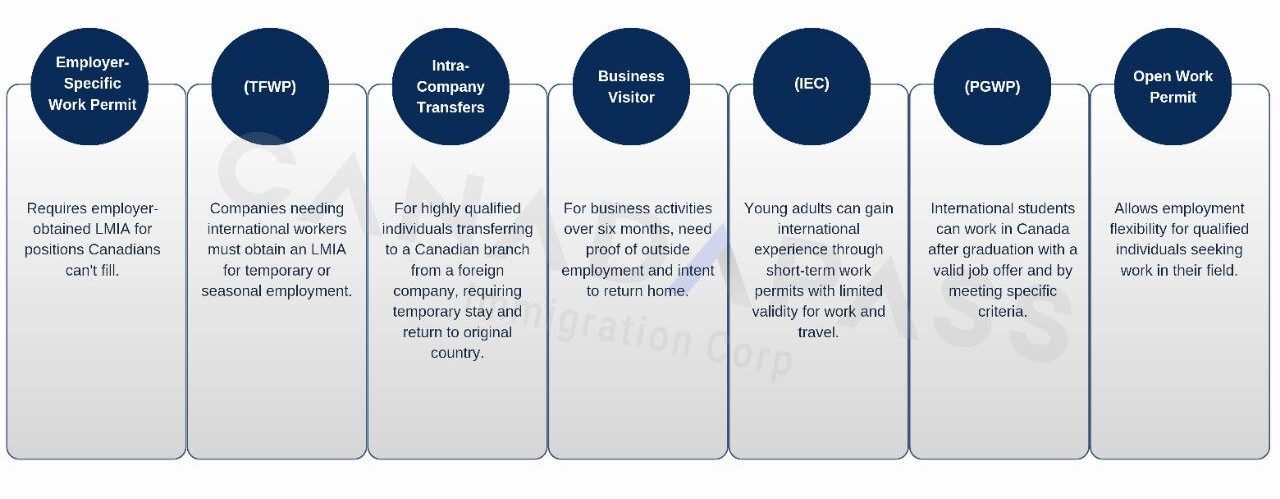
Main Types of Work Permits:
● Employer-Specific Work Permit: Requires an employer-obtained Labour Market Impact Assessment (LMIA) and applies to specific positions Canadians can’t fill.
● Temporary Foreign Worker Program (TFWP): For companies needing international workers, requiring an LMIA and offering temporary or seasonal employment.
● Intra-Company Transfers: For highly qualified individuals transferring from a company’s foreign branch to its Canadian branch, requiring a temporary stay and return to the original country.
● Business Visitor: For short-term business activities exceeding six months, requiring proof of outside employment and intent to return home.
● International Experience Canada (IEC): For young adults to gain international experience through work and travel, offering short-term work permits and limited validity.
● Post-Graduation Work Permit (PGWP): For international students to work in Canada after graduation, requiring a valid job offer and meeting specific criteria.
● Open Work Permit: Allows for employment flexibility, applicable to qualified individuals with relevant experience seeking work in their field.

LMIA Considerations:
● LMIA-Required: Most employer-specific and TFWP positions require an LMIA, demonstrating no qualified Canadian workers available.
● LMIA-Exempt: Situations like full-time work permit holders for one year, Express Entry-approved job offers, and specific permit categories may be exempt.
Unlocking Opportunities with a Canadian Work Permit
Obtaining a Canadian work permit opens doors to
a multitude of personal and professional benefits. While the process may require careful planning and preparation, the rewards can be significant.
Here’s a glimpse of what awaits you:
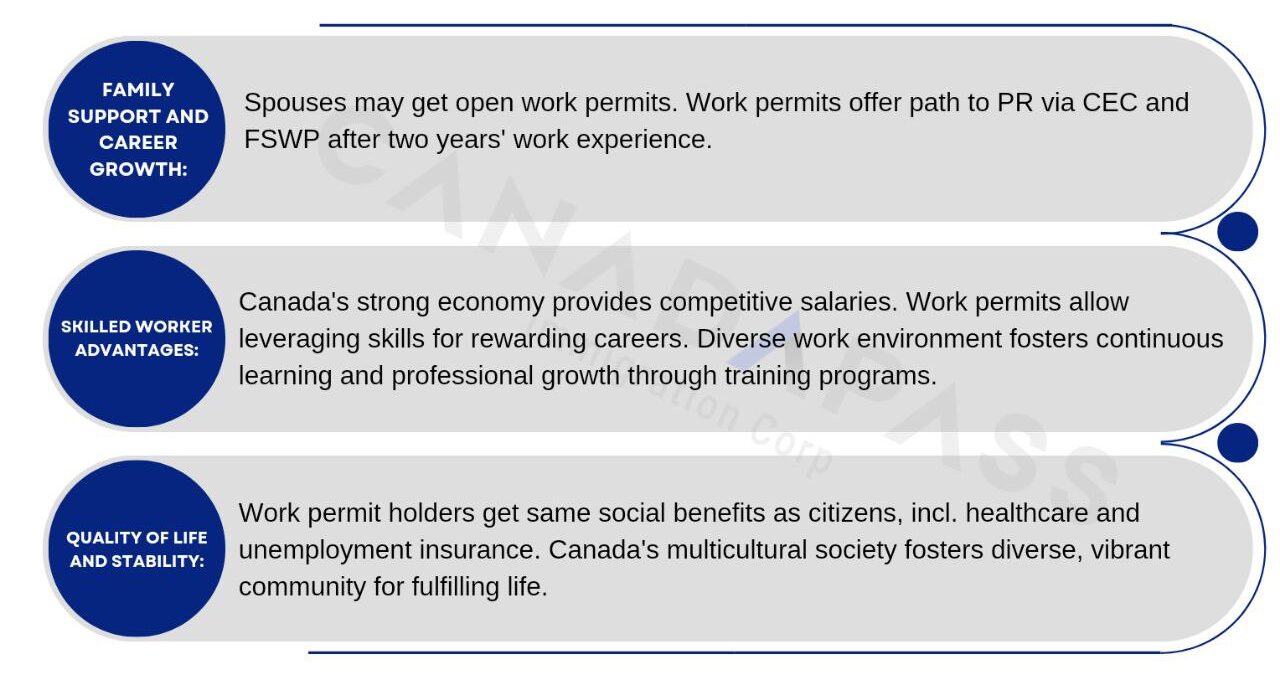
1. Family Support and Career Growth:
● Open Work Permits for Spouses: Depending on your qualifications
and work permit type, your spouse or partner may be eligible for an open work
permit. This allows them to seek employment freely in Canada, fostering a
supportive environment for both of you.
● Path to Permanent Residency: A work permit provides a valuable stepping stone towards permanent residency in Canada. The Canadian Experience Class (CEC) and Federal Skilled Worker Program (FSWP) offer pathways to permanent residency after just two years of work experience in Canada.
2. Skilled Worker Advantages:
● Enhanced Earning Potential: Canada’s robust economy offers competitive salaries across various industries. With a work permit, you can leverage your skills and experience to secure rewarding career opportunities.
● Professional Development: Canada’s diverse and dynamic work environment fosters continuous learning and growth. Access to training programs and professional development opportunities can further enhance your skillset and career prospects.
3. Quality of Life and Stability:
● Social Security and Benefits: Work permit holders are entitled to the same social security benefits as Canadian citizens, including healthcare and unemployment insurance. This provides peace of mind and financial security.
● Multicultural Society: Canada’s welcoming and inclusive society offers a diverse and vibrant cultural experience. You can connect with people from different backgrounds and build a fulfilling life in a supportive community.
Navigating the Canadian Work Permit Application:
Applying for a Canadian work permit involves
careful planning and preparation. Here’s a general overview to guide you through the process:
1. Identify the Appropriate Permit Type:
● Closed Work Permit: This permit is tied to a specific employer and job offer. You cannot change employers or locations without applying for a new permit.
● Open Work Permit: This permit grants flexibility to work for any employer in Canada, offering greater career mobility.
● Additional Permit Types: Explore specific program options like the International Experience Canada (IEC) or Post-Graduation Work Permit (PGWP) if applicable.
2. Gather Required Documentation:
● Base Documents:
○ IMM 1295 form (for applicants outside Canada)
○ Proof of fee payments
○ Passport copy
○ Two photographs with name and date of birth
○ Proof of current residency
○ Proof of job qualifications
● Additional Documents:
○ LMIA copy and number (if applicable)
○ eTA or TRV (if applicable)
○ Job offer letter
○ Other documents may be required based on your specific circumstances and chosen program.
3. Application Steps:
● Create an online profile and download the document checklist on the official Immigration, Refugees and Citizenship Canada (IRCC) website: https://www.canada.ca/en/services/immigration-citizenship.html: https://www.canada.ca/en/services/immigration-citizenship.html.
● Gather all required documents and ensure they meet the specified format and language requirements.
● Submit your application online or by mail, depending on the program and your location.
● Track your application status and respond to any requests for additional information promptly.
Important Points to Remember:
● Application processing times can vary significantly depending on the program and individual circumstances.
● Ensure you meet all eligibility requirements for your chosen permit type before applying.
● Consider seeking professional guidance from an immigration consultant for personalized advice and assistance with the application process.
By carefully preparing and following these
steps, you can increase your chances of a successful work permit application and embark on your Canadian career journey.





